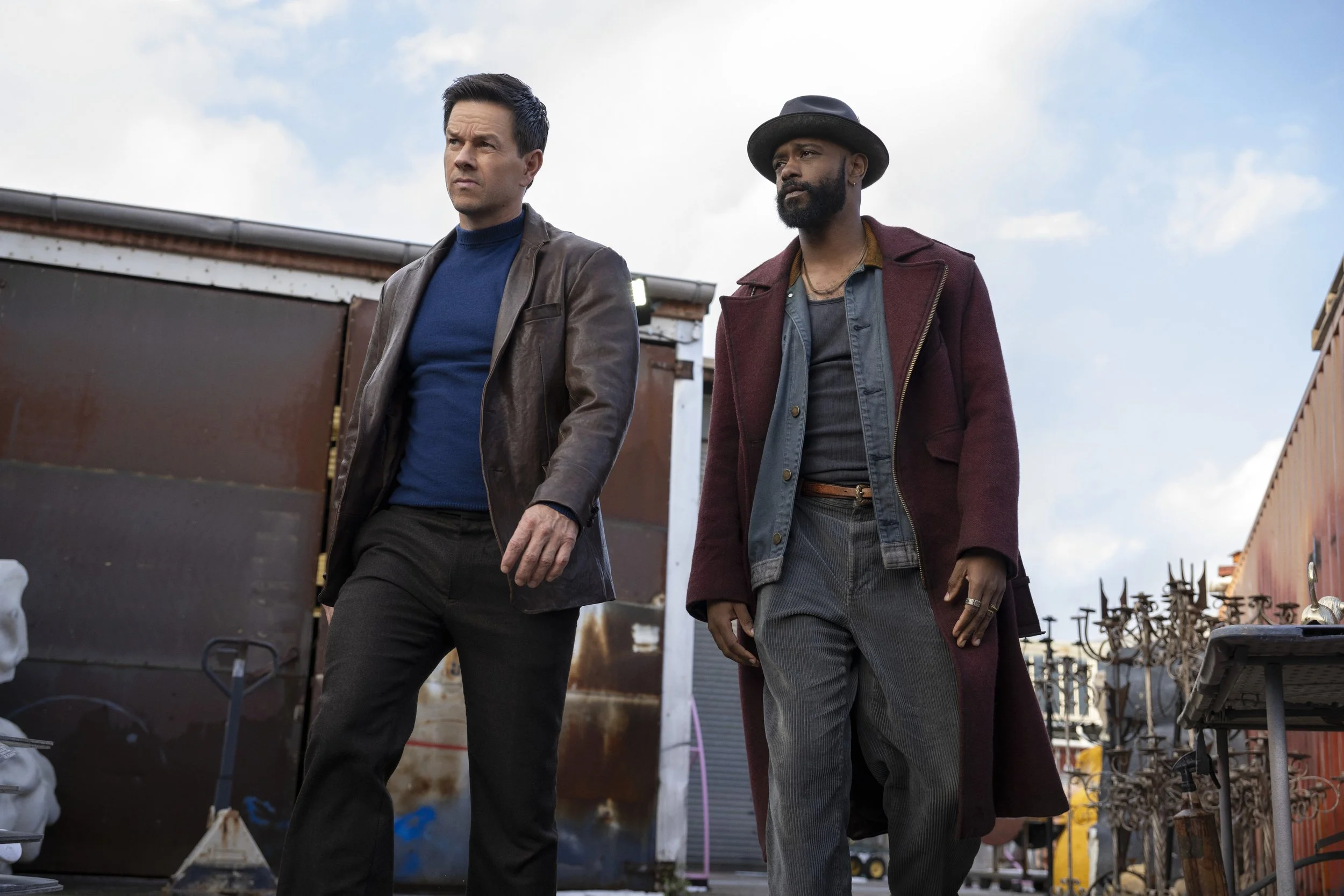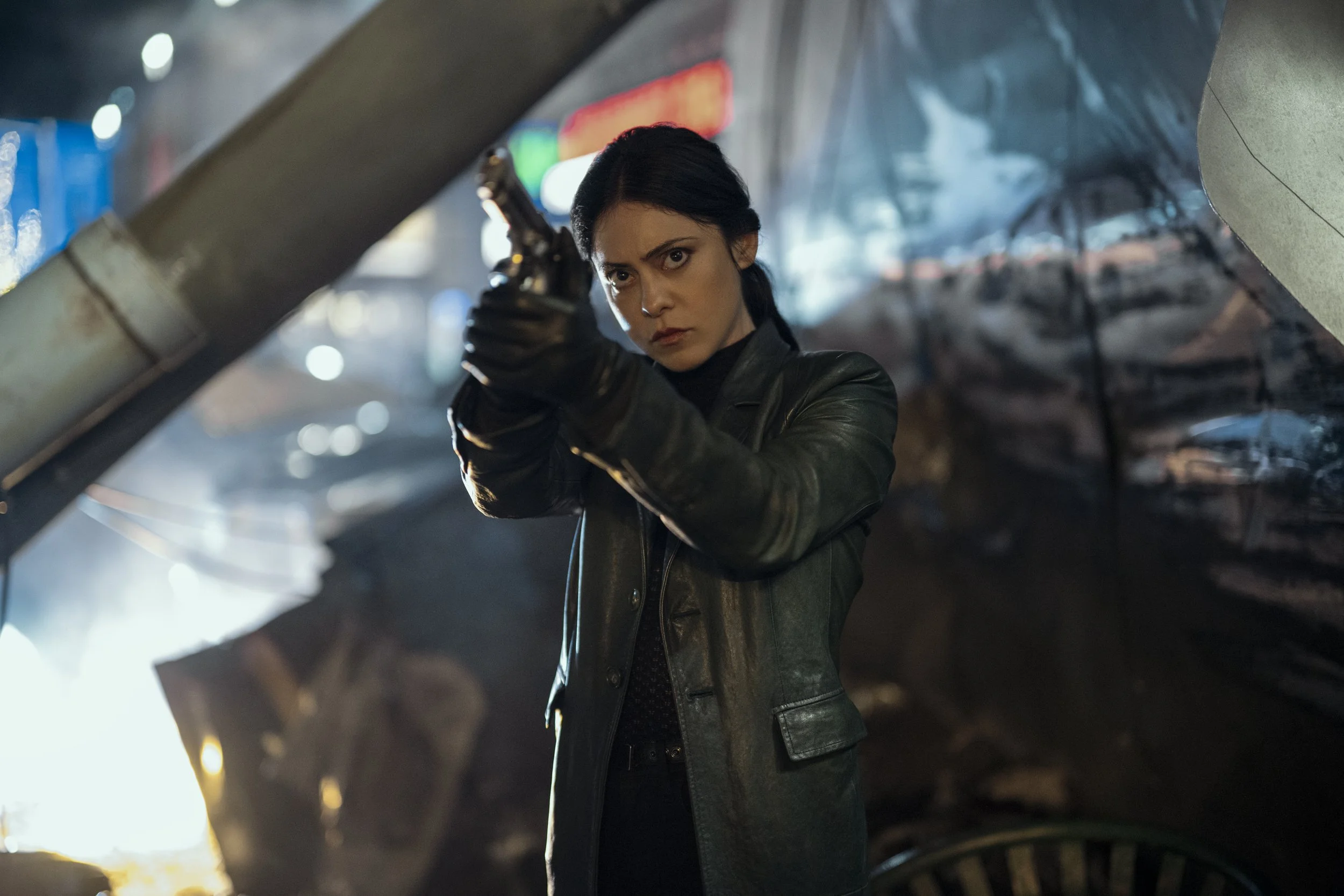‘Play Dirty’ Review
Playful in his approach to action films, Shane Black has rightfully earned a place among the smartest writers working in Hollywood, thanks to a razor-sharp wit and an impressive balance of levity above the darkness. Having fun directing a few massive properties like Iron Man 3 and 2018’s The Predator—the latter of which was Black’s last feature-length film and a divisive entry within the science fiction series—it’s his buddy-cop films that have made him the dependable writer he is today. At the same time that Black was churning out screenplays for films like Lethal Weapon, The Long Kiss Goodnight, The Last Boy Scout, and Last Action Hero, a slew of action-comedies trying to emulate what Black had perfected began rushing into multiplexes and have since become mainstays in ‘80s and ‘90s pop culture. Some of those films are fantastic in their own right and have rightfully earned their reputation. However, as the decades have passed and we've moved further away from that era, many subsequent releases have reeked of pale imitation.
Black’s latest film, Play Dirty, is an entertaining heist film that retains the qualities of a Shane Black screenplay and effectively evokes a bygone era, befitting its source material. Adapted from the series of Parker novels from Donald E. Westlake (whose book, The Ax, was just recently adapted by Park Chan-wook in No Other Choice) by Black, Charles Mondry, and Anthony Bagarozzi, it’s also Black getting to play around with a well-established character that fits within the original story contained within. Parker (Mark Wahlberg) is an open book with very few pages. His personal history remains an enigma, while his interactions are direct and often bluntly end a conversation if it’ll waste time—a funny personification of Ryan Gosling’s Holland March responding to Russell Crowe’s Jackson Healy in 2016’s The Nice Guys about telling a long story when they could have just said the meaning. Parker fits neatly within Black’s wheelhouse and unsurprisingly yields some humorous moments as the chaos around him threatens the success rate of his latest heist.
The heist in Play Dirty is also entertaining in its construction. When one heist goes south after a member of Parker’s crew, Zen (Rosa Salazar), betrays them all to take the score, Parker quickly follows the money to discover Zen’s intentions were not selfish but actually the foundations of another plan: to steal treasure from a shipwreck and help their home country instead of letting its corrupt President continue lining his pockets. Parker loops in Grofield (LaKeith Stanfield), a fellow thief and an aspiring thespian who uses his scores to fund his own theatre company, and other trusted thieves in New York City to help Zen pull off the heist. Exiled from the city by a crime syndicate known as The Outfit, Parker is forced to come out of the shadows and confront the organization’s leader, Lozini (Tony Shalhoub), to successfully realize the job.
The cast and intricate web of robberies and crime that Black and company weave is what makes Play Dirty a fun playground of subterfuge and violence. Wahlberg fits the Parker character well, and while it’s not really a stretch of a performance, neither is what almost anyone else is doing. Salazar might be the most entertaining and consistent presence in the film. However, Nat Wolff’s fluctuations between calm, flippant cryptobro to a nervous wreck in the face of Parker’s path is arguably the highlight of the acting showcased throughout. It’s also just great to see Shalhoub play a mob boss, even if it’s not particularly memorable. Witty dialogue and some neat flourishes in the action—including a sequence where the sound design adds levity to the mayhem—support a strong ensemble that allows each member to find moments to stand out among the rest.
What seems to be lacking in Play Dirty is any sense of escalation. Parker’s such a controlled and confident character that when things do seem to go awry, it’s not really felt beyond other characters remarking how off the rails things have become. If action does feel larger in scope than other set pieces, it’s usually a case of scale as opposed to momentum or pacing. The writing remains enjoyable in Play Dirty, with fun double-crosses, snappy wordplay, and clever action scripting. Still, something is missing after the initial heist goes south, leaving the film feeling oddly enervated. The few action beats that counter this feeling don’t have the impact or zip that Black’s previously directed films have had, and even the dialogue can sometimes miss its mark. Despite the film’s ensemble comprising a variety of strong performances, there’s an argument to be made that distilling the crew down to merely Parker, Grofield, and Zen would have yielded far more entertaining and memorable characters.
Movies like Kiss Kiss Bang Bang and The Nice Guys have earned their cult status since their release, but Black’s directorial efforts outside of franchise filmmaking have always garnered less attention than they deserve, until well past their release. Play Dirty being relegated to streaming instead of receiving a theatrical release is not inherently a bad thing, considering his past non-franchise films have not done well at the box office. Still, there are times when Black’s latest evokes the pale imitations of his breed of action-comedy. Alan Silvestri’s score for Play Dirty also hearkens back to that era of buddy cop success, but it reminded me that many of the films we admire from Black’s filmography are not directed by him, and the direction in those films often elevates an already impressive screenplay. With Play Dirty, it’s evident that while Black continues to be the gold standard for action comedy writing, his films can suffer if they’re not as finely tuned as the script. An entertaining enough romp through the thieves’ den, Play Dirty might find an audience over time, but it never quite sets itself apart from recent action comedies—which is an ironic fate for a Shane Black film.


